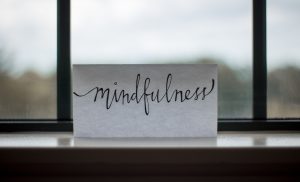The Benefits Of Laughter Yoga For Mental Health
Did you know that laughter is not only good for the soul, but also for your mental health? Laughter Yoga, a unique practice that combines laughter and yogic breathing exercises, has been gaining popularity for its numerous benefits. By engaging in intentional laughter, you can reduce stress, improve mood, boost immune function, and enhance overall well-being. In this article, we will explore the many advantages of incorporating laughter yoga into your daily routine, and how it can positively impact your mental health. So, sit back, relax, and get ready to laugh your way to a healthier mind!
Laughter Yoga: An Introduction
Laughter Yoga, also known as Hasyayoga, is a unique and innovative approach to promoting mental well-being through laughter and deep breathing exercises. It combines the principles of yoga and the healing power of laughter to achieve a state of joy and relaxation. Laughter Yoga is not just about humor or comedy; it is a deliberate, intentional practice that harnesses the physical, mental, and emotional benefits of laughter. In this article, we will explore the history and science behind Laughter Yoga, its connection to mental health, the techniques involved, and the numerous benefits it offers for improving your overall well-being.
What is Laughter Yoga?
Laughter Yoga is a revolutionary concept developed by Dr. Madan Kataria, a medical doctor from India, in 1995. It combines simulated laughter exercises with deep breathing techniques to create a unique form of yoga that promotes both physical and mental health. Unlike traditional yoga that focuses on physical postures, Laughter Yoga primarily focuses on laughter as the main exercise.
History of Laughter Yoga
Laughter has long been recognized as a natural healer, but it wasn’t until the 1990s that Dr. Madan Kataria, inspired by the work of Norman Cousins, decided to explore the therapeutic potential of laughter. He started Laughter Yoga clubs in parks in Mumbai, India, and soon the movement spread across the globe. Today, Laughter Yoga is practiced in over 100 countries and has helped millions of people improve their mental and emotional well-being.
How Does Laughter Yoga Work?
Laughter Yoga works on the premise that the body cannot differentiate between fake and genuine laughter. By engaging in laughter exercises, the body releases endorphins, the feel-good hormones, which help reduce stress, boost mood, and promote a sense of well-being. The deep breathing exercises in Laughter Yoga increase oxygen levels in the body, rejuvenating the cells and enhancing overall vitality. Additionally, laughter also works as a powerful social connector, promoting human bonding and improving relationships.
Understanding Mental Health
What is Mental Health?
Mental health refers to a state of well-being in which an individual realizes their own potential, can cope with the normal stresses of life, and can work productively and meaningfully. It encompasses emotional, psychological, and social aspects of a person’s life and influences how they feel, think, and act. Good mental health is essential for overall health and well-being, enabling individuals to lead fulfilling and balanced lives.
Common Mental Health Issues
There are several prevalent mental health issues that can affect individuals, including anxiety disorders, depression, stress-related disorders, and mood disorders. Anxiety disorders, such as generalized anxiety disorder and panic disorder, are characterized by excessive worrying, fear, and a sense of unease. Depression is a common mental health disorder that causes persistent feelings of sadness, loss of interest, and a lack of motivation. Stress-related disorders, such as post-traumatic stress disorder (PTSD), can occur after a traumatic event and manifest as intrusive memories, nightmares, and hyperarousal. Mood disorders, such as bipolar disorder, involve extreme shifts in mood, energy levels, and activity levels.
Impact of Mental Health on Daily Life
Mental health issues can significantly impact various aspects of daily life, including relationships, work or school performance, physical health, and overall quality of life. Individuals experiencing mental health problems may find it challenging to engage in daily activities, experience difficulties in maintaining relationships, and face increased vulnerability to physical health issues. Additionally, mental health issues can lead to social stigma and discrimination, creating barriers to seeking and receiving adequate support and treatment.
The Connection between Laughter and Mental Health
Positive Effects of Laughter on Mental Health
Laughter can have profound positive effects on mental health. It triggers the release of endorphins, which are natural painkillers and mood-boosting hormones. Laughter also reduces the production of stress hormones, such as cortisol, and promotes relaxation. Regular laughter can alleviate symptoms of depression and anxiety, improve emotional well-being, and provide a sense of joy and resilience.
Scientific Explanation of Laughter’s Impact on the Brain
When you engage in laughter, it activates various regions of the brain, including the limbic system, which is responsible for emotions. Laughter stimulates the production of neurotransmitters, such as dopamine and serotonin, which are involved in regulating mood and emotions. These neurochemicals promote a sense of happiness, reduce stress, and enhance overall well-being.
How Laughter Benefits Emotional Well-being
Laughter acts as a natural stress reliever by reducing the levels of stress hormones and increasing the production of endorphins. It also promotes a positive mindset, fosters emotional resilience, and helps individuals cope with difficult situations. Laughter can provide a temporary escape from negative thoughts or emotions and create a more optimistic outlook on life. Regular laughter can significantly improve emotional well-being, leading to enhanced self-esteem, confidence, and a greater sense of happiness.
Exploring Laughter Yoga as a Mental Health Therapy
What is Laughter Yoga Therapy?
Laughter Yoga Therapy is an innovative, non-invasive form of therapy that combines laughter exercises with traditional yoga techniques, deep breathing, meditation, and mindfulness. It aims to enhance mental, emotional, and physical well-being by inducing laughter and creating a positive mindset. Laughter Yoga Therapy involves a series of laughter exercises done in a group setting, facilitated by a certified Laughter Yoga instructor.
Components of Laughter Yoga Therapy
Laughter Yoga Therapy primarily incorporates laughter exercises, deep breathing techniques, and guided laughter meditations. The laughter exercises are designed to generate laughter through playful interactions and spontaneous laughter. Deep breathing techniques help increase oxygen levels in the body, improving vitality and promoting relaxation. Guided laughter meditations guide individuals through a systematic laughter practice, allowing for deeper engagement and immersion in the experience.
Philosophy behind Laughter Yoga
The philosophy behind Laughter Yoga is rooted in the belief that laughter is a unique and powerful tool for promoting holistic well-being. It emphasizes the practice of unconditional laughter, where laughter is not dependent on humor or external stimuli. Instead, individuals engage in laughter exercises that stimulate genuine laughter, leading to the same physiological and psychological benefits as spontaneous laughter. Laughter Yoga encourages individuals to embrace laughter as an essential aspect of their well-being and to create a positive and joyful mindset.
Benefits of Laughter Yoga for Mental Health
Stress and Anxiety Reduction
Laughter Yoga is highly effective in reducing stress and anxiety levels. The laughter exercises and deep breathing techniques release tension from the body, relax the muscles, and promote a sense of calm and well-being. Regular practice of Laughter Yoga can help individuals manage stress more effectively, reduce anxiety symptoms, and experience increased relaxation.
Improved Mood and Happiness
Laughter has a direct impact on mood and happiness. Engaging in laughter releases endorphins, the feel-good hormones, which elevate mood and promote a sense of happiness and well-being. Laughter Yoga provides a natural and sustainable way of experiencing joy and happiness, enhancing overall emotional well-being and improving the quality of life.
Enhanced Resilience and Decreased Depression
Laughter Yoga strengthens emotional resilience by training individuals to find humor and joy in challenging situations. It helps individuals develop a positive mindset, enabling them to bounce back from setbacks and cope with adversity. Regular laughter practice can also reduce symptoms of depression by increasing serotonin levels, promoting a sense of well-being, and providing temporary relief from negative thoughts and feelings.
Boosted Self-esteem and Confidence
Laughter Yoga cultivates a positive self-image by promoting self-acceptance and self-compassion. The practice encourages individuals to let go of self-judgment and embrace laughter as a source of joy and healing. As self-esteem improves, individuals experience increased self-confidence, enhanced social interactions, and a greater sense of overall well-being.
Improved Social Connections
Laughter is a powerful social enhancer, fostering human bonding and improving social connections. Laughter Yoga is often practiced in a group setting, promoting a sense of camaraderie, trust, and support. By engaging in laughter exercises together, individuals develop stronger social connections, reduce feelings of isolation, and enhance interpersonal relationships.
Cognitive Benefits and Memory Enhancement
Laughter stimulates brain activity, improving cognitive functions such as memory, attention, and creativity. By increasing blood flow to the brain, laughter enhances mental alertness and boosts memory. Regular laughter practice can improve cognitive performance and provide long-term benefits for brain health.
Promotes Mindfulness and Present-Moment Awareness
Laughter Yoga incorporates elements of mindfulness and present-moment awareness. It encourages individuals to fully immerse themselves in the experience of laughter, letting go of past and future concerns. By focusing on the present moment, individuals can cultivate mindfulness, reduce stress, and experience greater clarity and peace of mind.
Immune System Stimulation
Laughter has a positive impact on the immune system, strengthening the body’s natural defense mechanisms. When you engage in laughter, the body experiences a boost in immune cells, antibodies, and natural killer cells. Regular laughter practice helps enhance immune function, reduces the risk of illnesses, and promotes overall physical well-being.
Reduction in Pain Perception
Laughter triggers the release of endorphins, which are natural painkillers. It can help alleviate physical pain and discomfort, providing temporary relief and promoting a sense of well-being. Laughter Yoga can be an effective complementary therapy for individuals experiencing chronic pain or recovering from physical injuries.
Increased Energy and Vitality
Laughter Yoga energizes the body and enhances vitality. The deep breathing exercises increase oxygen levels in the body, improving circulation and boosting energy. Regular practice of Laughter Yoga can combat fatigue, increase productivity, and promote overall physical and mental vitality.
Laughter Yoga Techniques
Laughter Exercises
Laughter exercises in Laughter Yoga are designed to stimulate laughter through playful interactions and various laughter-inducing activities. These exercises often involve child-like playfulness, such as pretending to laugh like a lion, or engaging in group activities that create a jovial atmosphere. These exercises are done with an intention to laugh, regardless of whether it feels forced or natural initially.
Deep Breathing Techniques
Deep breathing techniques in Laughter Yoga help increase oxygen flow in the body, promoting relaxation and vitality. These techniques involve taking slow, deep breaths, expanding the diaphragm fully, and exhaling slowly. Deep breathing helps remove stale air from the lungs and brings in fresh, oxygenated air, rejuvenating the cells and enhancing physical and mental well-being.
Guided Laughter Meditation
Guided laughter meditation is a form of mindfulness practice that combines deep breathing with laughter. It involves guided visualization, deep relaxation, and intentional laughter. During this practice, individuals are guided to visualize happy and joyous moments while engaging in laughter, allowing for a deeper immersion in the experience and a profound sense of relaxation and well-being.
Getting Started with Laughter Yoga
Finding a Laughter Yoga Group
To get started with Laughter Yoga, the first step is to find a local Laughter Yoga group or club in your area. Many Laughter Yoga groups meet in parks, community centers, or yoga studios. You can search online for local Laughter Yoga groups or connect with Laughter Yoga organizations in your region to find group sessions near you.
Laughter Yoga Practitioner Training
For individuals interested in becoming Laughter Yoga practitioners, attending a Laughter Yoga practitioner training program is recommended. These training programs provide in-depth knowledge on the principles and techniques of Laughter Yoga and equip aspiring practitioners with the skills to lead laughter sessions effectively. Training programs are available in various formats, including in-person workshops and online courses.
Practicing Laughter Yoga at Home
If attending group sessions is not feasible, you can practice Laughter Yoga at home. There are several resources available, including books, DVDs, and online videos that provide guidance on laughter exercises, deep breathing techniques, and guided laughter meditations. Practicing Laughter Yoga at home allows for flexibility and convenience, enabling you to incorporate laughter into your daily routine.
Precautions and Considerations
Consultation with a Healthcare Professional
Although Laughter Yoga is generally safe for most individuals, it is recommended to consult with a healthcare professional before starting any new exercise or wellness program. This is particularly important for individuals with pre-existing medical conditions or those who are pregnant. A healthcare professional can provide guidance and determine if Laughter Yoga is suitable for your specific needs.
Appropriate for Different Age Groups
Laughter Yoga is suitable for people of all age groups, from children to older adults. It can be adapted to meet the physical and emotional capabilities of different age groups. Laughter Yoga is especially beneficial for seniors as it promotes social interaction, increases physical activity, and improves overall well-being.
Modifications for Physical Limitations
Laughter Yoga exercises can be modified to accommodate individuals with physical limitations or disabilities. Individuals who are unable to stand or engage in vigorous movements can participate in seated laughter exercises or modify the intensity of the exercises to suit their abilities. It is essential to listen to your body and adapt the laughter practice to avoid any physical strain or discomfort.
Combining Laughter Yoga with Other Mental Health Practices
Laughter Yoga and Meditation
Combining Laughter Yoga with meditation can create a powerful synergy of relaxation and well-being. The deep breathing techniques in Laughter Yoga can serve as a bridge to cultivating mindfulness and presence. By incorporating laughter into meditation practice, individuals can experience deeper relaxation, increased clarity of mind, and a greater sense of overall well-being.
Laughter Yoga and Cognitive Behavioral Therapy
Laughter Yoga can complement cognitive-behavioral therapy (CBT) by offering a unique and enjoyable way to challenge negative thoughts and reframe them in a more positive light. The practice of unconditional laughter in Laughter Yoga can help individuals develop a more optimistic outlook, break negative thinking patterns, and enhance the effectiveness of CBT interventions.
Laughter Yoga and Mindfulness
Laughter Yoga and mindfulness share common elements of present-moment awareness and non-judgment. The intentional laughter practice in Laughter Yoga can serve as a form of active mindfulness by redirecting attention to the present moment and fostering a sense of joy and well-being. Combining Laughter Yoga with mindfulness techniques can deepen the benefits and provide a holistic approach to mental health and well-being.
Conclusion
Laughter Yoga offers a unique and effective approach to promoting mental health and well-being. Its scientifically proven benefits, such as stress reduction, improved mood, enhanced resilience, and increased social connections, make it a valuable tool for improving mental health. By incorporating laughter exercises, deep breathing techniques, and guided laughter meditations, Laughter Yoga provides a holistic practice that nourishes the mind, body, and spirit. So embrace laughter, seek out a Laughter Yoga group, or practice at home, and experience the transformative power of laughter for your mental health.
















